This post was originally published on Outlier Media.
Celina Byrd’s favorite color is pink. So, when she owned a childcare center in 2010, she naturally decided to paint the walls pink, not realizing the bright color could be distracting for the children.
“I knew I wanted to do good work for the families but there was not much literature or research out at that time on something as simple as paint colors,” she recalls. “But now we do know, in the ages between 0 and 8, that there are specific colors that are calming, and (ones) that stimulate the brain.”
Byrd is now the Michigan director of early childhood strategy for IFF, a financing and consulting organization that supports nonprofit work in education, health care, and affordable housing in the Midwest. IFF’s Learning Spaces program provides grant funding and design consulting to early childhood education and childcare centers, to upgrade their facilities.
IFF is part of Hope Starts Here, a city-wide initiative supported by the W.K. Kellogg Foundation and The Kresge Foundation, that supports young children and families, through a common vision, coordinated implementation, collective advocacy, and a shared infrastructure.
The initiative has six imperatives, or goals, and IFF works under Imperative 4 to cultivate safe and inspiring environments for Detroit children. This includes improving spaces by addressing air quality, paint colors used to decorate, lighting, ventilation, noise, classroom furnishings and outdoor play areas at childcare centers. Byrd says these are all elements that can affect a child’s ability to learn.
“It can be overstimulating for some (children) to be in an environment that has lots of noise, for example,” she explained. “Lighting is also helpful to a child’s ability to focus. We know that natural lighting has so many benefits, as far as the vitamins that it provides, and we’ve learned the importance of bringing the outside in to connect (the children) to the outdoors. We want to be sure to provide an environment that they can learn in, that is inspiring, (and) that is safe.”
The Learning Spaces program has provided nearly $3.5 million worth of improvements to 52 home and childcare center-based facilities. In addition, the State of Michigan’s Caring for MI Future: Facilities Improvement Fund, administered by IFF, provided support to 84 new and expanding childcare programs in Detroit with $6.4 million in grant funds.
One center supported by IFF is the Marygrove Early Education Center, which serves roughly 144 children from birth to age 5. Byrd is the former lead for the Marygrove center.
“IFF was very intentional (in) identifying what the colors needed to be to support the children and not overstimulate them, because we have children that come into the center with varying degrees of learning abilities,” she said. “Bright orange, for example, might overwhelm a child, so we’ll look at maybe softer pastel colors that promote more of a warm, cooling, serene feeling.”
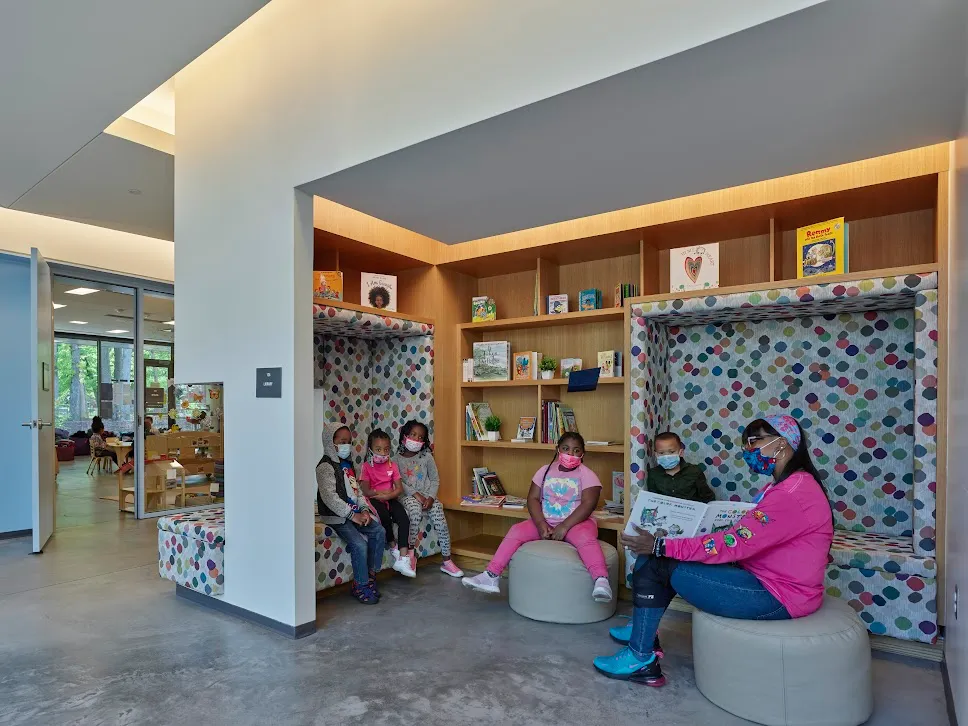
In Southwest Detroit, IFF works with the Detroit Hispanic Development Corporation (DHDC) to improve the safety of informal childcare spaces and provide wraparound services to childcare providers.
“Here in Southwest Detroit, there are absolutely no childcare centers, so what a lot of people do is look for these childcare providers – grandmothers, neighbors, somebody that they trust,” said Goya Diaz, family services director for DHDC. “Not a lot of the providers are set up like a childcare center. They have educational toys for the kids, but not a lot of providers have safety equipment like carbon monoxide detectors or smoke detectors.”
DHDC runs a seven-week workshop for these informal childcare providers where they learn about brain development, safety, nutrition, the effects of toxic stress, and their own self-care. Once they complete the program, providers receive a home assessment to make sure their learning space is safe for children, and they can receive mini-grants for improvements through IFF. The workshop is conducted in Spanish to better serve the Hispanic population in Southwest Detroit.
“During the sessions, we teach basic first aid, the importance of having fire drills and a fire extinguisher,” Diaz said. “There’s also simple things like making sure you have baby gates in the kitchen, especially when you are cooking, not having a lot of clutter around because the kids might trip on it, and making sure to lock up your medicine because kids are very curious.”
The mini-grants from IFF help support the home childcare providers with their safety concerns as well, like covering blunt or sharp table corners and fixing leaky or crumbling ceilings. Grants can also help improve lighting in areas where the children take naptime, to make it more relaxing.
These DHDC workshops for informal childcare providers stress the importance of their role as being more than just feeding and caring for the children, but also about stimulating their brains to learn.
“We educate the providers on how kids, at such a small age, they are learning sponges,” Diaz said. “So, we want to emphasize the importance of playing while learning. A provider is not just taking care of the child, (they’re) educating the child.”
DHDC provides a support group for the childcare providers to address their own mental health and other needs.
“Some of our providers have told us they work with kids that are on the (autism) spectrum and it’s very overwhelming for them, so we tell them they can call us anytime. It’s very important for these providers to have a support system,” Diaz said. “We assist them with any wraparound services that they may need, not just for being a provider but if they need food, low-income health assessments, things like that, we guide them to places they can get those things.”
Byrd said improving Detroit’s early childhood care facilities will enhance the quality of education and care received.
“Imperative 4 is moving us away from thinking, ‘This is how it’s always been (and) this is always how it has to be,’” she said. “Your child deserves spaces that celebrate who they are, who they can be, and who they will become. It sets the standard of what learning environments for children should be, regardless of your zip code and economic status.”

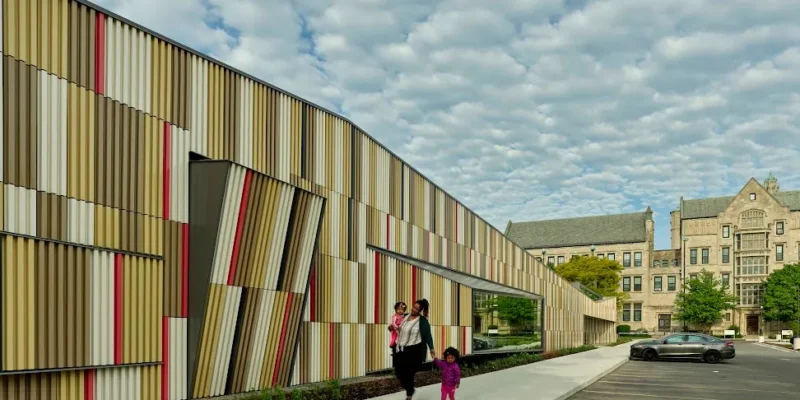

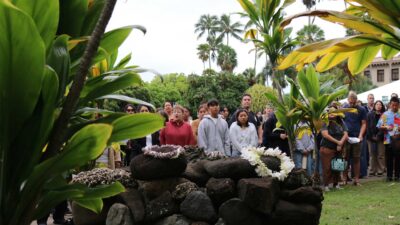

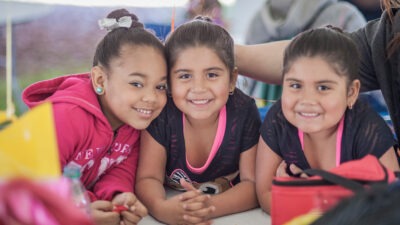
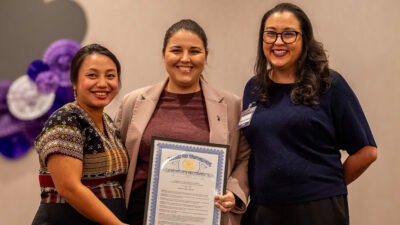
Comments